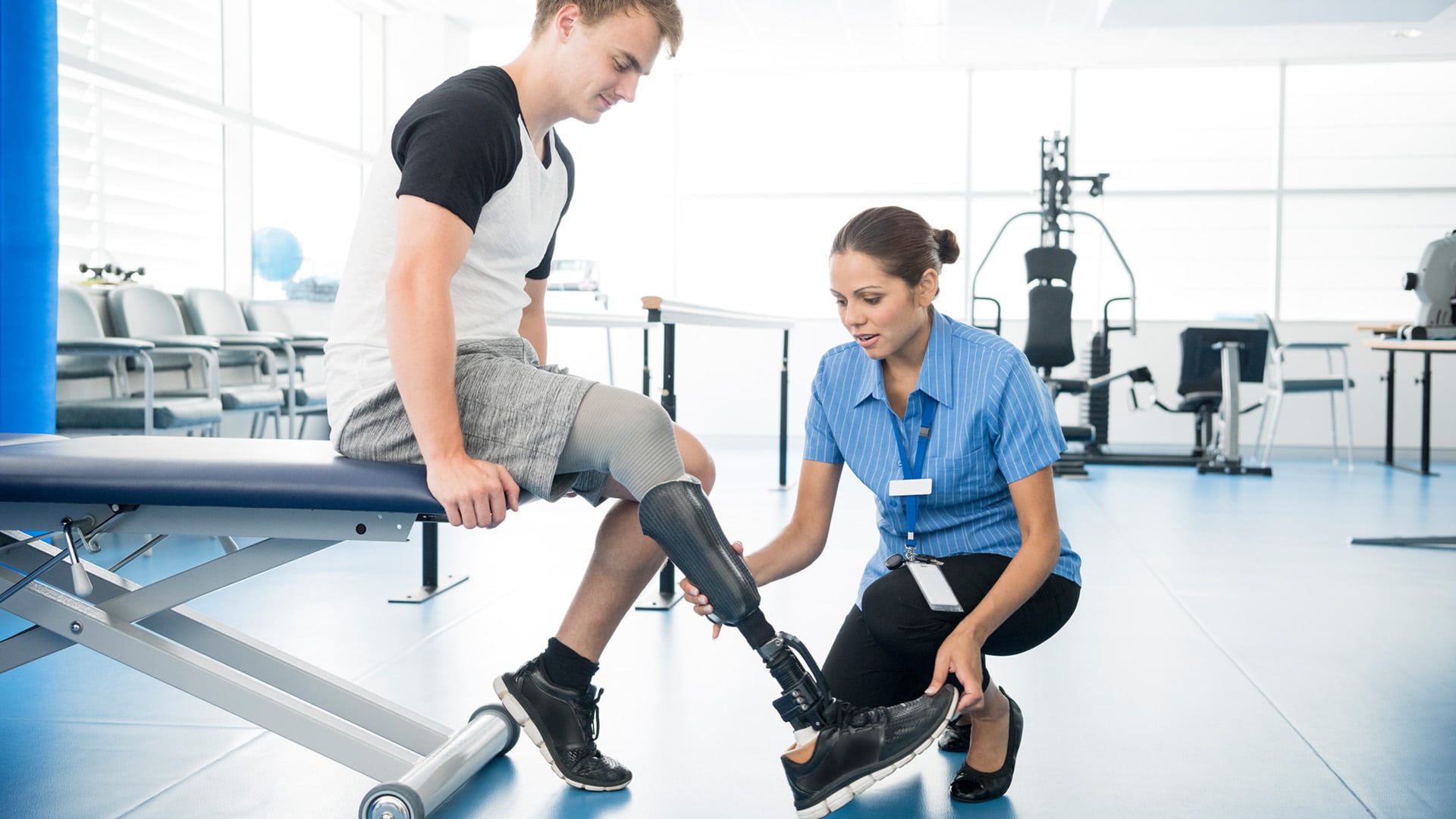Allied Health Profession
Allied Health Professions (AHPs) constitute a pivotal and diverse segment of the healthcare workforce. These dedicated professionals, often holding advanced degrees, form an integral part of healthcare delivery across various sectors, encompassing social care, housing, education, and independent and voluntary organisations. AHPs are characterised by their versatility and independent practice, providing essential services such as patient assessments, treatments, diagnoses, and discharge planning.
One of the remarkable aspects of AHPs is their commitment to a holistic healthcare philosophy. Their approach extends beyond traditional medical interventions, emphasising health and well-being improvement and preventive measures. AHPs are dedicated to optimising individuals' capacity to lead active, fulfilling lives. Under the AHP umbrella, there exist 14 distinct professions, 13 of which are regulated by the Health and Care Professions Council (HCPC), while Osteopaths are overseen by the General Osteopathic Council (GOC). These professionals collectively contribute to the quality and accessibility of healthcare services.
In an ever-evolving healthcare landscape, AHPs play an indispensable role in shaping healthcare outcomes. Their dedication, advanced skills, and holistic approach make them valuable assets in promoting the overall well-being of individuals and communities. As they continue to make significant contributions to patient care, AHPs remain at the forefront of healthcare innovation and excellence.
List of Allied Health Professions
Paramedics
.jpg)
Paramedics
Paramedics represent the frontline of emergency medical care, serving as highly trained healthcare professionals within the ambulance service. Their critical role involves responding swiftly to accidents and medical emergencies, where they undertake the vital task of assessing patients' conditions and delivering life-saving treatments. This comprehensive care includes administering essential interventions like oxygen therapy and medications, all while utilising advanced equipment such as defibrillators, spinal and traction splints, and intravenous infusions. Paramedics' swift actions and expertise are instrumental in stabilising patients and providing the necessary medical support during critical moments.
Radiographers
Diagnostic radiographers play a critical role in healthcare by obtaining high-quality images for the detection of injuries or diseases. Their responsibilities encompass conducting safe and precise imaging examinations and generating follow-up reports. Radiographers are integral members of teams involved in Breast Screening and Pregnancy Ultrasound Monitoring.
On the other hand, therapeutic radiographers specialise in cancer treatment, focusing on the planning and administration of radiation therapy. This treatment may be used independently or in conjunction with surgery and/or chemotherapy. Therapeutic radiographers guide patients through the various stages of radiation therapy, offering care and support throughout the treatment process.
To ensure the safety and effectiveness of their profession, the Health and Care Professions Council (HCPC) diligently assesses candidates to verify their compliance with necessary requirements, including the quality of training programs. The HCPC is committed to safeguarding the public by setting educational, training, and practice standards for professionals. It maintains a register of professionals who meet these standards and takes appropriate action when individuals fail to meet the criteria.
In the development of standards and recommendations, the HCPC collaborates extensively with various stakeholders, including professional bodies, government entities, employers, trade unions, service users, and the general public. This collaborative approach ensures the continuous enhancement of healthcare standards and patient care.
Radiographers
.jpg)
Dramatherapists

Dramatherapists
Drama therapists are uniquely skilled professionals, blending their expertise as clinicians with artistic talents, to harness the performing arts as a potent therapeutic tool. Their role extends to addressing a wide spectrum of issues, encompassing conditions like autism and dementia, as well as experiences of physical and sexual abuse, and various mental health challenges. The transformative power of drama therapy extends to fostering profound changes in the psychological, emotional, and social well-being of individuals. These dedicated therapists operate in diverse settings, ranging from educational institutions and mental health facilities to general health and social care facilities, correctional institutions, and the voluntary sector, effectively reaching and assisting diverse populations seeking healing and growth.
Operating Department Practitioners
Operating Department Practitioners (ODPs) are indispensable professionals in the perioperative phase. They meticulously prepare operating rooms, manage anaesthesia equipment and surgical instruments, and provide vital support during surgery. In the recovery ward, ODPs monitor patients' vital signs and assess their readiness for transfer to the main ward. They excel in facilitating seamless communication among surgical teams, operating rooms, and other hospital units. ODPs' expertise ensures the efficiency of surgical procedures and enhances patient safety throughout the perioperative journey.
Operating Department Practitioners

Chiropodists/Podiatrists

Chiropodists/Podiatrists
Podiatrists play a pivotal role in the healthcare ecosystem by offering essential assessments, evaluations, and specialised foot care to individuals dealing with a wide spectrum of both chronic and acute disorders. This includes patients within high-risk groups, such as those managing conditions like diabetes, peripheral arterial disease, and peripheral nerve injury.
In the field of podiatry, many professionals have furthered their expertise by specialising in biomechanics, often focusing on the treatment of sports-related injuries. However, these specialised skills find applications across various demographics, including the care of children and seniors, as well as assisting in surgical procedures. Podiatrists operate within diverse healthcare settings, including community healthcare and acute care facilities. While a significant number serve within the NHS, many also contribute their expertise in the commercial sector, ensuring accessibility to quality foot care services for a wide range of individuals.
Prosthetists and Orthotists
Prosthetists are skilled practitioners who assist patients with limb loss and gait analysis. They possess in-depth expertise in mechanics, biomechanics, material science, anatomy, physiology, and pathophysiology. Prosthetists specialise in designing and crafting prostheses that closely replicate the structural and functional aspects of the patient's missing limb.
Orthotists, on the other hand, are certified practitioners specialising in gait analysis and treatment design for individuals with neuromuscular, muscular, and skeletal system concerns. They develop and provide orthoses, which are devices that modify the structural or functional elements of a patient's neuromuscular and skeletal systems. Orthotists enable improved mobility, correction of gait issues, fall prevention, pain reduction, and assistance in ulcer healing. While they can practise independently, they often collaborate within multidisciplinary teams, particularly in diabetic foot care and neuro-rehabilitation settings.
Prosthetists and Orthotists

Dietitians

Dietitians
Dietitians are highly skilled healthcare professionals with expertise in analysing, diagnosing, and addressing dietary and nutritional disorders. Their practice is grounded in the latest research in public health and scientific knowledge about the intricate relationship between food, health, and illness. Dietitians play a crucial role in offering practical guidance, enabling individuals to make informed decisions about their lifestyle and dietary choices to foster optimal health.
The career landscape for dietitians is diverse, with opportunities spanning various sectors. These professionals can be found in the National Health Service (NHS), private practice, industry, educational institutions, research organisations, sports, media, public relations, publishing, government agencies, and non-governmental organisations (NGOs). Their versatile skill set allows them to contribute significantly to improving the overall well-being of individuals and communities across a broad spectrum of settings and contexts.
Orthoptists
Orthoptic practitioners play a multifaceted role that spans various age groups and a wide spectrum of eye-related conditions. Their responsibilities encompass diverse tasks, ranging from providing care to premature babies with retinopathy of prematurity and addressing vision impairment in children with squints to managing eye movement disorders in both adults and children attributed to various factors such as diabetes, hypertension, endocrine disorders, cancer, trauma, and stroke.
These dedicated professionals operate in a range of healthcare and educational settings, including acute hospitals and community environments. They often collaborate seamlessly as integral members of multidisciplinary teams, alongside medical, nursing, and Allied Health Professionals (AHPs). The versatility of orthoptic practitioners enables them to make substantial contributions to the assessment, diagnosis, and treatment of eye-related conditions across diverse populations, promoting visual health and well-being.
Orthoptists
.jpg)
Osteopaths
.jpg)
Osteopaths
Osteopaths adopt a holistic approach to diagnose and treat a wide range of medical conditions. They focus on the interconnectedness of the body's structure and function, aiming to restore balance and health. Osteopathic treatments, including manual manipulation, stretching, and massage, enhance joint mobility, reduce muscle tension, improve blood and nerve supply, and activate the body's healing mechanisms. This non-invasive approach promotes overall well-being and recovery.
Music Therapists
Music therapists employ the profound power of live musical interaction to enhance the emotional well-being and communication capabilities of their clients. This therapeutic approach serves as a dynamic platform for developing and enhancing vital communication skills, nurturing self-confidence and independence, fostering improved concentration and attention, and deepening self-awareness, as well as awareness of others.
One of the remarkable aspects of music therapy is its inclusive nature, making it accessible to clients facing challenges in communication due to disability, illness, or injury. For these individuals, music therapy becomes an invaluable conduit for addressing a comprehensive spectrum of needs, including psychological, emotional, cognitive, physical, communicative, and social aspects. Through meaningful musical engagement with their therapist, clients can experience transformative benefits that transcend traditional forms of communication, enriching their quality of life and overall well-being.
Music Therapists

Physiotherapists

Physiotherapists
Physiotherapy is a healthcare discipline focused on enhancing physical, psychological, and social well-being through physical methods. Collaborating closely with individuals, physiotherapists aim to optimise functional capacity and potential through cooperative efforts. They employ a multifaceted approach, encompassing advice, treatment, rehabilitation, health promotion, and behavioural change.
Physiotherapists address a wide spectrum of challenges, spanning impairments, activity limitations, and participation barriers. They manage various conditions, including those affecting the neuromuscular, musculoskeletal, cardiovascular, and respiratory systems, across different patient groups, from young children to the elderly. Physiotherapists operate in diverse settings, including acute care, community healthcare, and workplace environments, striving to improve the overall quality of life and well-being of their patients.
Speech and Language Therapists
Speech and language therapists (SLTs) are dedicated professionals specialising in helping both children and adults overcome challenges related to speech, language, communication, and swallowing. Their multifaceted roles include facilitating young children's access to education, supporting young offenders in accessing rehabilitation programs aimed at reducing reoffending, and addressing critical issues such as life-threatening swallowing problems in the immediate aftermath of a stroke.
In addition to these vital interventions, SLTs provide essential assistance to adults grappling with acquired neurological communication difficulties. Their efforts are instrumental in helping these individuals reintegrate into the workforce and resume their roles within their families and communities. SLTs play a pivotal role in enhancing the overall quality of life and well-being of their patients by fostering effective communication and addressing complex swallowing issues.
Speech and Language Therapists

Art Therapists

Art Therapists
Art therapy is a form of psychotherapy that offers a powerful avenue for patients to address a diverse array of challenges, spanning emotional, behavioural, or mental health concerns, as well as learning or physical disabilities, life-limiting illnesses, neurological conditions, or physical ailments. What makes art therapy particularly impactful is its ability to yield positive outcomes for individuals of all age groups, irrespective of any prior artistic experience. Unlike diagnostic methods, art therapy operates as a medium for communication and self-expression, facilitating a profound therapeutic journey for those seeking support and healing.
Occupational Therapists
Occupational therapists (OTs) are dedicated professionals who provide valuable support to individuals spanning all age groups, addressing challenges arising from various sources, including physical, mental, social, or developmental factors. Employing a diverse array of therapeutic techniques, OTs assist people in enhancing their capacity to independently manage self-care, engage in meaningful work, acquire knowledge, partake in recreational activities, and foster meaningful interactions with others.
The impact of occupational therapists is profound, as they play a pivotal role in elevating patient well-being and facilitating rehabilitation across a wide spectrum of healthcare pathways. Their contributions extend beyond clinical settings, as they influence the broader landscape of public health and social care. Occupational therapists are instrumental in helping individuals regain their independence, improve their quality of life, and foster a sense of purpose and connection within their communities.
Occupational Therapists

